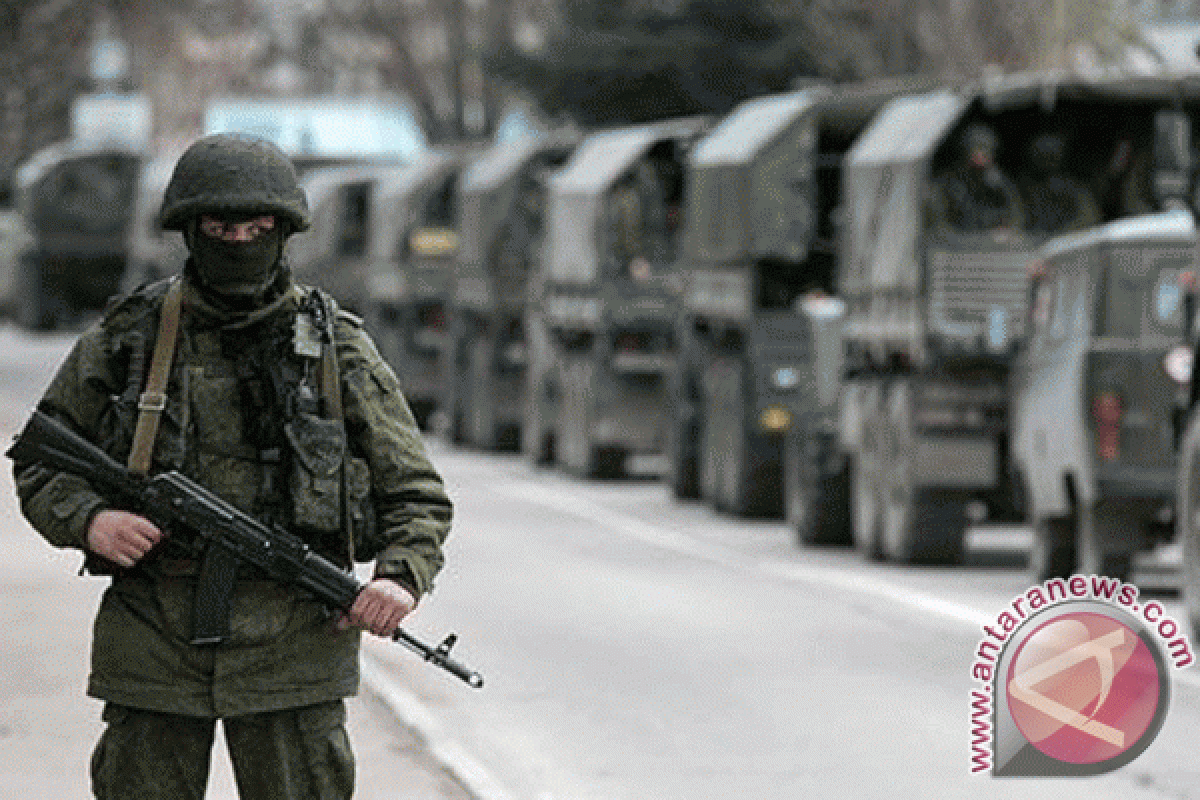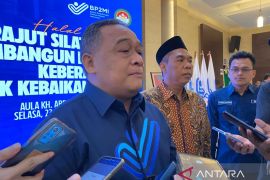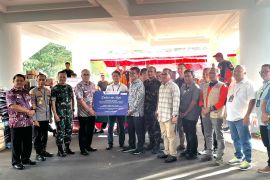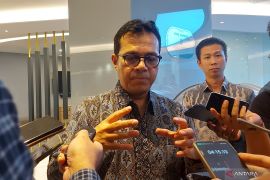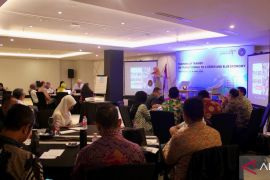The language of the statements rather resembles the verbal jousting of the `Cold War` eraMoscow (ANTARA News/Reuters) - Russia accused NATO on Wednesday of reverting to the "verbal jousting" of the Cold War by suspending cooperation with Moscow over its annexation of Crimea.
NATO foreign ministers agreed on Tuesday to suspend all practical cooperation with Russia, draft measures to strengthen defences and reassure nervous Eastern European countries in the worst East-West crisis since the Cold War ended in 1991.
Moscow did not announce any measures to retaliate, but Foreign Minister Sergei Lavrov expressed concern over the moves in a phone call with U.S. Secretary of State John Kerry, Russias Foreign Ministry said.
"The language of the statements rather resembles the verbal jousting of the Cold War era," Foreign Ministry spokesman Alexander Lukashevich said in a statement.
He noted that the last time NATO took such a decision, over Russias five-day war with Georgia in 2008, the alliance later resumed cooperation of its own accord.
"It is not hard to imagine who will gain from the suspension of cooperation between Russia and NATO on countering modern threats and challenges to international and European security, in particular in areas such as the fight against terrorism, piracy and natural and man-made disasters," Lukashevich said.
"In any case, it will certainly not be Russia or NATO member states."
In Washington, U.S. State Department spokeswoman Marie Harf said Kerrys phone call with Lavrov was brief and that Kerry "conveyed the strong support he was hearing for the people of Ukraine - and the legitimate government of Ukraine - from his counterparts during his NATO meeting in Brussels."
Harf also underscored U.S. concerns about Russian troops along their shared border with Ukraine.
Calling the situation "incredibly concerning," NATOs supreme allied commander in Europe, U.S. Air Force General Philip Breedlove, also said on Wednesday that NATO had spotted signs of movement by a very small part of the Russian force overnight, but had no indication that this was part of a withdrawal to barracks.
Breedlove said Russia has massed all the forces it needs on Ukraines border if it were to decide to carry out any "incursion" into the country and "we think it could accomplish its objectives in between three and five days if directed to make the actions."
NATO military chiefs are concerned that the Russian force on the Ukrainian border, which they estimate stands at 40,000 soldiers, could pose a threat to eastern and southern Ukraine.
Russian forces took control of Crimea, a strategic Ukrainian peninsula on the Black Sea, which then voted to unite with Russia in a March 16 referendum seen as a sham in the West.
Moscow formally annexed Crimea on March 21.
The suspension of NATO cooperation with Moscow means Russia cannot participate in joint exercises, although the alliance says joint work in Afghanistan on training counter-narcotics personnel, maintaining Afghan air force helicopters and providing a transit route out of the country could continue.
German Foreign Minister Frank-Walter Steinmeier said on Tuesday NATOs future relationship with Russia would depend, among other things, on whether Russia started withdrawing troops massed near Ukraines eastern border.
"The statements about Moscows allegedly aggressive intentions posing a threat to NATO member states are absolutely groundless," said Alexander Grushko, Russias permanent representative at NATO, according to Interfax news agency.
(G005)
Editor: Ella Syafputri
Copyright © ANTARA 2014
